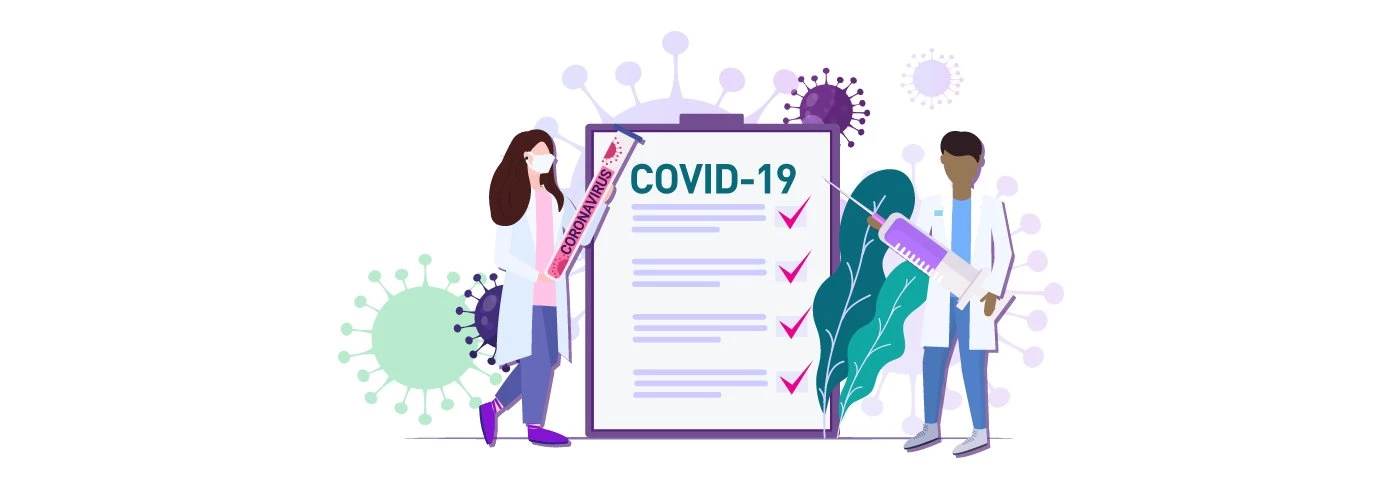For years, I have worked to help people manage anxiety about cancer. But the COVID-19 pandemic - including social distancing, work and school closures, and now the economic crisis - has magnified worries and fears about health, wellbeing and survival. This is especially true for those with cancer.
Patients are being told their appointments are canceled, scans could be delayed, and that they are most at risk for getting a new and deadly virus. These are scary, difficult times. Yes, we have to call it what it is. But by talking about it, there is hope - hope that we can manage the worry and move forward as safely as possible.
COVID-19 & Cancer: You Have the Tools
All the strategies for managing anxiety in the setting of cancer still apply now more than ever.
Focus on the basics: sleep, diet and exercise, modalities that are evidence-based interventions for worry and fatigue.
- Seriously double down on your efforts with your sleep habits. Set a bedtime and a wake time, avoid caffeine after noon and practice relaxation one hour before bed.
- Don’t keep the news on in your bedroom. We all want to stay informed, but our bodies and minds need a reset.
- Avoid more than one drink at night as alcohol disrupts sleep.
- Eat fruits, vegetables and whole grains; anti-inflammatory foods are cancer fighters.
- Move your body, stretch, dance, do yoga or tai chi online.
- Practice physical therapy exercises 3 times a day.
- A daily morning walk not only reduces stress but also promotes better sleep.
Managing the Mind
Beyond the basics, managing anxiety requires that you learn to manage your mind. Try to be aware of your emotions and thoughts. Consider writing them down. Practice talking to yourself in a caring and compassionate way.
Look and listen for what is actually working around you - the electricity, the water, the trees, the birds, the radio (change the channel if what you are hearing is upsetting), a kid who is actually doing virtual school, a religious/community group that sent an uplifting video, spring flowers and trees. Training your mind to notice and be amazed by the world around you is considered a healthy, sophisticated, psychological process.
Cancer Was a Crash Course in Covid-19 Preparation
Even with these strategies, people in treatment for cancer during COVID-19 are going to worry more because of the reality that they are more vulnerable to infection, and this has always been true. People in cancer treatment are the ones who already know about the importance of handwashing, not touching your face and distancing yourself from people who are sick or have been exposed to many people who could be potentially sick. You’ve got this. You know this already. In fact, you are actually in a position to educate and support others who are just learning about minimizing risk of infection.
Activate Your Team & Stay Informed
Please take note that the people who are in the business of caring for cancer patients have not forgotten you! We know well that cancer is the first thing many people think about when they wake up. The doctors, nurses and staff in cancer centers around the world are dedicated to beating cancer both with clinical work and research.
Medical organizations like the Centers for Disease Control, National Institute of Health and World Health Organization are pushing out helpful information via websites and social media during the COVID-19 crisis including specifics for people in active cancer treatment. Stay informed, rely on reliable sources, but also pick a time to turn it off. Limit-setting is a critical skill in times of stress. Know your limit for news and social media. Often people need to turn off information gathering at dinner time, so they can relax and quiet their mind before bedtime.
Managing Anxiety
Anxiety is a normal and necessary reaction to a dangerous situation. This is because the emotion causes you to carefully consider your situation and behave in a way that keeps you safe. For example, anxiety is what gets you to wash hands. However, anxiety becomes problematic when your thoughts about getting sick are excessive, your mood is constantly edgy and irritable, and your behavior makes it worse (hoarding toilet paper or coping with chemicals like drugs and alcohol). Call your oncology team or your primary care doctor if you are experiencing symptoms that may meet the criteria for an anxiety disorder. Treatment for anxiety works.
Reach Out
These resources may be helpful:
- Managing Anxiety & Stress from the CDC
- Managing Anxiety & Isolation During Quarantine
- Keeping a Safe Distance from the American Psychology Association
You have been through difficult times before, but you are reading this now. You are breathing now. And the skills that got you to today will be ones you draw on to keep going forward. One day at a time, right?
Stay well,
Wendy Baer MD
 Wendy Baer, MD, is Medical Director of Psychiatric Oncology with appointments in the Department of Psychiatry and the Department of Hematology and Medical Oncology at the Winship Cancer Institute. Dr. Baer helps patients and their families deal with the stress of receiving a cancer diagnosis and subsequent treatment. The fundamental goal of her practice is to promote wellness and maximize patients' quality of life as much as possible.
Wendy Baer, MD, is Medical Director of Psychiatric Oncology with appointments in the Department of Psychiatry and the Department of Hematology and Medical Oncology at the Winship Cancer Institute. Dr. Baer helps patients and their families deal with the stress of receiving a cancer diagnosis and subsequent treatment. The fundamental goal of her practice is to promote wellness and maximize patients' quality of life as much as possible.




